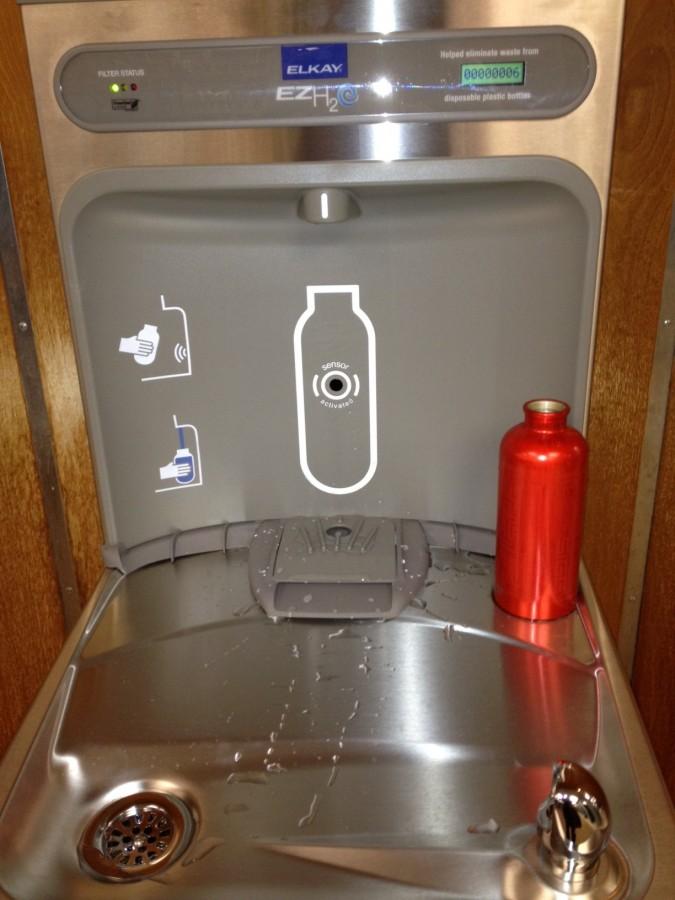Since 2011, California has been in a severe drought. According to the Los Angeles Times, there is currently only enough water in storage to last around 12 to 18 months. Calabasas has not run out of water; however, other cities have. For example, the wells of Tulare County, a California region near Fresno, have completely dried up. As a result, Gov. Jerry Brown has urged residents to reduce water usage by 20 percent in order to improve the current situation. Each community is trying to improve this situation by conserving water in any way possible.
CHS is also trying to find ways to conserve water to improve the drought in California. To help conserve water, CHS has installed a “hydration station” in order to encourage students to bring reusable water bottles to school on a daily basis instead of using plastic water bottles everyday.
“I think it’s wonderful that our school is becoming more eco-friendly,” said junior Alex Barr. “It’s really great to see our school taking action and making efforts to not only better our campus but also our environment.”
CHS is not the only institution trying to help the situation. The Las Virgenes Municipal Water District (LVMWD) implemented a new rule about watering the lawn starting Sept. 1. The watering system is now on an “even/odd” watering schedule. This means that if someone has an address that ends with an even number, he or she can only water their lawn on Mondays, Wednesdays and Fridays. If a resident has an odd number, he or she can only irrigate on Tuesdays, Thursdays and Saturdays. The rule additionally states that lawns may only be watered from 10 a.m. until 5 p.m. on Sundays. If a resident fails to comply with LVMWD’s’ new rules, they could be subject to pay a fine of up to $500.
With the drought in California being a prevalent issue right now, residents are becoming more conscious of how much water they are using and may be wasting. One of the goals of the LVMWD is to educate its users about how they can help to conserve water. According to the LVMWD, 70 percent of all the water is used outdoors. If residents reduce the number of days they irrigate and replace their lawn with other landscape that does not require water, people can make a major difference. In the future, the LVMWD hopes to reduce water-usage within the community.








